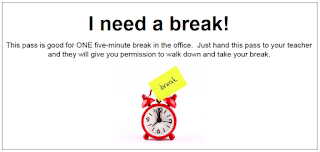Binder Sections:
- Copies of Investigation Note Taking and Investigative Protocol
- Pink Tabs (Unrelated to CASEL): Community Resources, Apology Note Templates, Think Sheet Templates, School PBIS Expectation Lessons, and Community Service Menu copies.
- Orange Tabs (color-coded to correspond to CASEL): Self-Awareness Resources and Lessons, Self-Management Resources and Lessons
- Green Tabs (color-coded to correspond to CASEL): Social Awareness Resources and Lessons, Relationship Skills Resources and Lessons
- Yellow Tabs (color-coded to correspond to CASEL): Responsible Decision-Making Resources and Lessons
Some of the Resources I Used to Compile the Binder Content:
- School PBIS Lessons and Materials
- Kelso's and KC's Choice Wheel Materials
- Second Step (District Adopted Curriculum) Materials
- Kids Health Online Articles
- "What To Do When..." Series by Dawn Heubner
- Don't Suspend Me! An Alternative Discipline Toolkit by J. Hannigan




